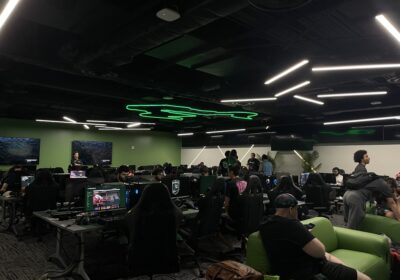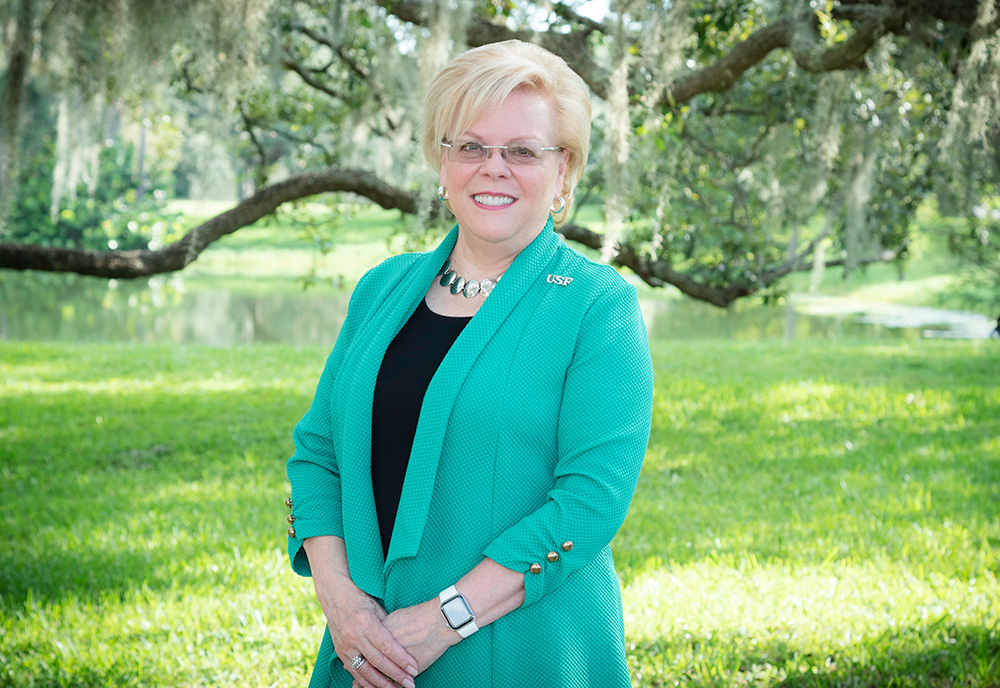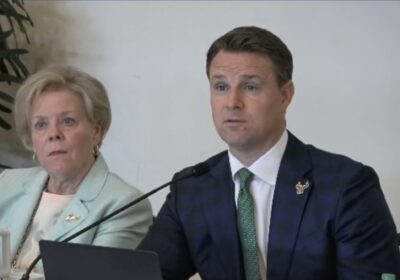USF’s new music curriculum gives more freedom to students

Bri Moreno was two years into her biomedical sciences major when she decided to go a different route. Now, Moreno is a musical education major.
What made a difference? USF’s School of Music’s new curriculum.
“The new pathway that was opened up through the School of Music was a huge contributing factor to my decision,” Moreno said. “With this new curriculum, I’m able to finish my degree in less time.”
The changes add a Contemporary Commercial Music concentration to the school and four more classes that encompass different topics – including rap and hip-hop, entrepreneurship, artificial intelligence and creative collaboration.
The new rap and hip-hop-related course will only be available to students within the new concentration, but anyone could take the remaining classes.
School of Music Director David Williams said the aim is to better prepare students for careers in the music industry by addressing new trends of popular music genres and changing cultural preferences.
“We’re highlighting those genres which tend to be the most popular today,” Williams said. “I have a bet that there are a lot of students across the campus that feel as if rap and hip-hop are more important to them than rock ’n’ roll.”
The new structure puts student choice first by expanding the curriculum into more culturally relevant genres. It also frees up elective credits for students, Williams said.
By reducing the amount of required classes in each degree program, students have the opportunity to replace those credits with electives of their choice.
For Moreno, the school’s freer structure allowed for her to take things, such as finances and graduation time, into consideration, while still switching to a major she preferred.
“I’ll be able to complete my music education degree in two and a half years instead of the full four and so I’m only incurring about an extra semester’s worth of classes,” Moreno said.
This freedom is exactly what Williams and the school’s faculty intended.
“I firmly believe that most students know more about what they need than we, the faculty, do,” Williams said. “And we want to give them the opportunity to exercise that.”
Faculty spent the last couple of years reviewing the college’s undergraduate curriculum to ensure it better serves students, Williams said.
“The idea is this: placing students front and center,” he said.
The School of Music’s bachelor’s in music previously only included concentrations in composition, jazz studies and performance.
The new classes allow students to learn about changes, not only in what music is most popular, but in modern industry practices as well, according to Williams.
In “Hip-hop and Vocal Songwriting,” students will spend the semester in listening sessions, exploring themes in the genre and writing their own rap songs.
USF brought rap artist and instructor Kenrick Wagner onboard to assist in designing the concentrations hip-hop, rap, EDM and R&B-focused material.
Related: Lunay and Baby Tate light up Yuengling
“Creativity in the Arts” creates unlikely collaboration between students from different artistic disciplines randomly grouped together for creative projects, according to Williams.
“It’s conceivable that there would be a rapper and a country artist and a trombone player and two singers that could be all together,” Williams said. “The goal of all that is for them to collaboratively make creative decisions with colleagues.”
Moreno is enrolled in the first semester of “Creativity in the Arts.”
“The students that are in that class currently, we’re all guinea pigs,” she said.
In “Introduction to Entrepreneurship in Music,” students will learn to think creatively about their career options to ensure that they are equipped to be more than just well trained musicians, according to the course’s website.
“Most musicians today have to go create a job,” Williams said. “They don’t go apply for a job. There’s not someone waiting to hire them.”
The school’s “Music Technology with Artificial Intelligence (AI)” course will teach students to make informed, responsible choices when using AI as a creative tool.
The class will open this upcoming spring, while some of the other classes have already begun this semester.
Related: USF’s AI Cybersecurity and computing college to be an example across the nation, leaders say
Williams said he anticipates that the courses will grow over time as they are taught.
“I think we’re preparing them for reality,” he said. “And it seems like that’s something we should be doing: preparing them for their future, not our past.”







